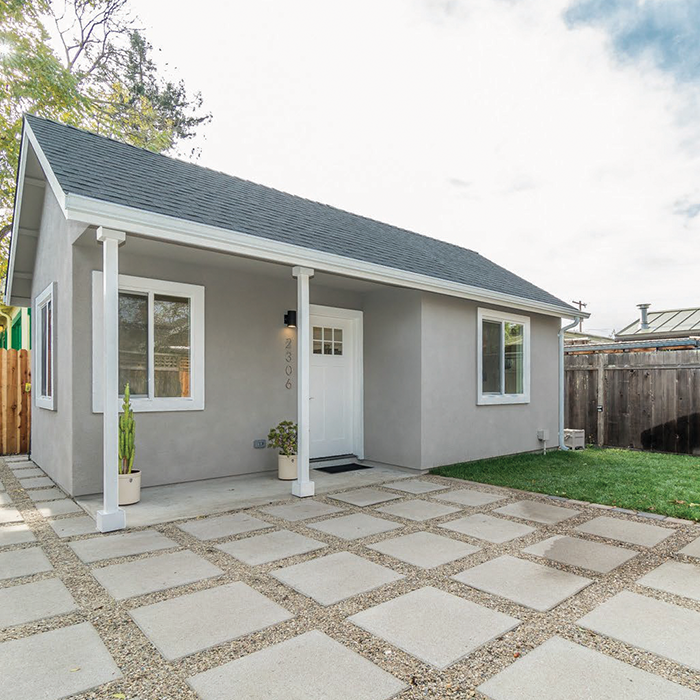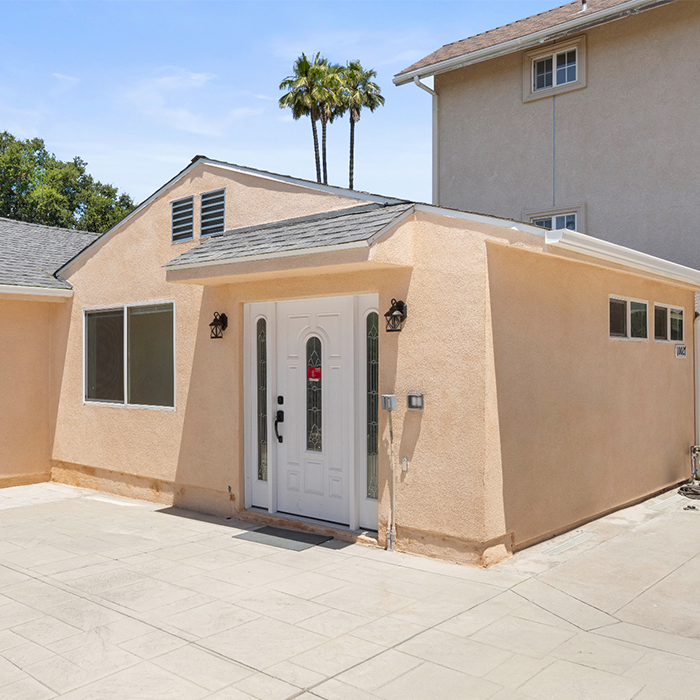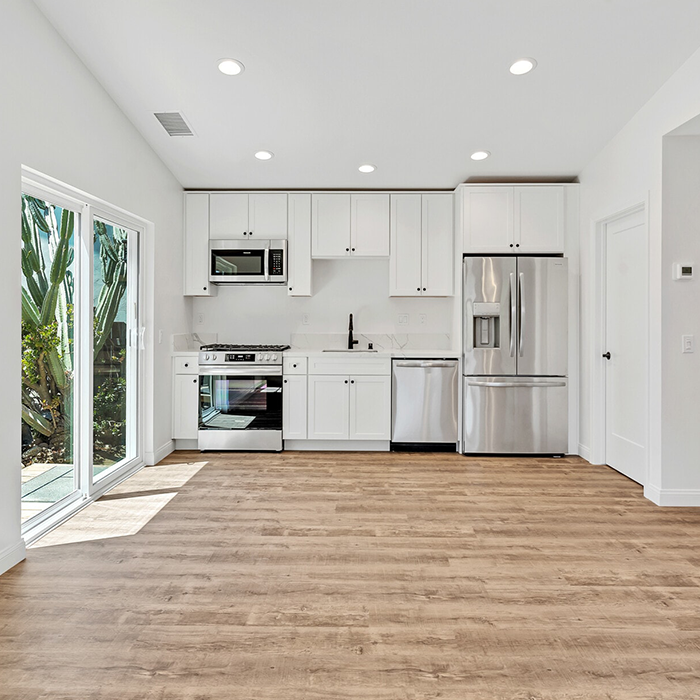Converting ADUs into Condominiums with AB 1033
AB 1033 is the latest state law designed to develop a market for ADUs, and thus lessen California’s grinding housing crisis. However, past legislative attempts have not met with much success.
In 2021, the legislature passed SB 9, which allowed homeowners to split their single-family parcel into two lots and build up to two units on each lot. It went into effect in January 2022.
What is AB1033?
AB 1033 Allows for a Simple Partition In-Kind of Single Family Homes. In 2023, California enacted AB 1033, which presents new opportunities for co-owners of property to partition a property in kind by allowing ADUs (Accessory Dwelling Units) to be sold separately from the main residence. ADUs do not have to meet the same building and safety standards as new construction or remodels.
What is the significance of AB 1033 in changing this landscape?
Accessory dwelling units, commonly known as ADUs, have been exclusively available for rent in California.
Assembly Bill 1033, a new law, now permits Californians to buy and sell them as condominiums, separate from the main house.
Will Los Angeles adopt AB 1033?
AB 1033 went into effect on January 1st, 2024. While Los Angeles is expected to opt in, homeowners must wait until it's made official. To be clear: separate ADU sales will only be available to homeowners if their local municipality adopts a new ordinance under AB 1033.
Separate ADU sales will only be available to homeowners if their local municipality adopts a new ordinance under AB 1033.
The Planning and Zoning Law authorizes a local agency, by ordinance or ministerial approval, to provide for the creation of accessory dwelling units in areas zoned for residential use. Existing law prohibits the accessory dwelling unit from being sold or otherwise conveyed separate from the primary residence.
This bill would amend Government Code Section 65852.2 (https://findhoalaw.com/
**AB 1033 was signed by the Governor on October 11, 2023 and took effect January 1, 2024.
ADUs come in various forms, such as converted garages, small backyard homes, or unused parts of the main house, according to Assemblyman Phil Ting, who introduced the legislation and represents San Francisco.
Can you have a 2 story ADU in California?
Signed into law on October 11, 2023, AB 1033 allows property owners in participating cities to construct an ADU on their land and sell it independently, following the same regulations that apply to condominiums. This offers homeowners more building options and aims to promote homeownership.
To make the ADU-as-condominium approach available in their cities, local governments need to opt in under the new law.
As of November 2023, local Southern Californian cities have not opted-in to the new law.
How the new rules will function in participating cities?
Similar to new condominiums, homeowners constructing ADUs must inform the local utilities (water, sewer, gas, and electric) about the creation and separate ownership of the unit. Each property is also required to establish a homeowners association to assess dues, covering the maintenance of the property's exterior and shared spaces like driveways, pools, or common roofs.
The home and the ADU will have distinct property taxes. Ting believes that initially, many ADUs going through this process will be sold to family members or close friends of the homeowner. Over time, as familiarity with this arrangement grows and more ADUs are sold, it may become a more common real estate transaction.
Because ADUs are typically smaller than the average home in a community, they tend to be more affordable than other market-rate units. A survey of ADU owners found that, in the Bay Area, ADUs rents were affordable to households making the median income (Ting).
Does AB 1033 benefit both homeowners and new buyers? Retirees, in particular, who have paid off their mortgage but rely on limited Social Security and retirement funds, can earn additional income through this law. Retirees are facing the challenge that, after many years of loan modifications and high interest rates, it doesn't make financial sense to move out of their homes. At the same time, young families can purchase an affordable starter home.
If you are thinking about adding an ADU to your property, let’s connect so we can discuss how an ADU affects your property values, your return on investment, and how you can best set yourself up for when local cities start implementing the rules of AB 1033.
Good To Know:
AB 976 (Ting, 2023) — makes permanent the existing prohibition on local government’s ability to require owner-occupancy on a parcel containing an ADU. This bill is also being heard at this hearing. AB 345 (Quirk-Silva, Chapter 343, Statutes of 2021) — required cities and counties to allow an ADU to be sold separately from the primary residence to a qualified buyer if certain conditions are met. AB 587 (Friedman, Chapter 657, Statutes of 2019) — allowed cities and counties to allow an ADU to be sold or conveyed separately from the primary residence to a qualified buyer under specified circumstances.
What is an ADU?



Accessory Dwelling Units (ADUs) have been known by many names: granny flats, in-law units, backyard cottages, secondary units and more. No matter what you call them, ADUs are an innovative, affordable, and effective option for adding much-needed housing in California.
- Current list of lenders and financing partners
- CalHFA ADU Grant Program income limits
Let's connect!
Alena Lehrer, Compass
DRE02120134
310.437.3700
[email protected]




